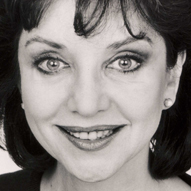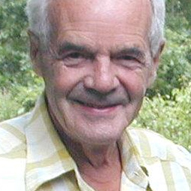You may know Peter Fernandez and Corinne Orr from their voiceover acting for Speed Racer. In addition to writing and directing the American scripts, Fernandez was the voice of Speed Racer and Racer X. Orr was the voice of Trixie and Spritle. But what you may not realize is that both of these actors began their careers just as old time radio was on the decline. (Indeed, Orr even appeared on an episode of CBS Radio Mystery Theater, Himan Brown’s effort in the 1970s to bring back old time radio.) Since one of my side projects has involved attempting to revive old time radio for the podcasting age, I am greatly interested in this generation of great voiceover actors. I’m also a fan of Speed Racer. Fernandez and Orr — both of whom are especially friendly people — kindly took some time out to talk with me while I was bumping around The New York Anime Festival. There were many topics discussed during our conversation. (After many curious years, I finally learned the story behind the third season Star Blazers casting switchover, which will be revealed once the podcast goes up.) But as it turned out, we got to the subject of old time radio pretty quickly.
Correspondent: Was there a stigma in terms of female actors doing boys at the time?
Orr: No. Everybody did it. (laughs) Not everybody, but it was common because we were coming out of the radio era.
Correspondent: Yeah.
 Orr: And people had doubled and tripled in shows. So…
Orr: And people had doubled and tripled in shows. So…
Fernandez: Well, on radio though — and I grew up partly doing the radio shows from the East Coast, which was where most of the dramatic shows came from. And they used real kids. There was one boy named Ronald Liss, who started doing radio when he was a year and a half. He could read.
Orr: Really?
Correspondent: Wow.
Fernandez: Yeah. Quite a bit. He went to the same school I did and they skipped him three grades.
Orr: I knew him. I loved him.
Correspondent: I’ve listened to a lot of old time radio and I actually have heard children. So that’s definitely true.
Fernandez: Yes.
Correspondent: Actually, this brings up a question I wanted to ask both of you, in terms of animation and anime reflecting this old time radio feel. Rather, there’s a whole generation that grew up who didn’t listen to old time radio. I only discovered it just by complete curiosity. And I’m wondering if you feel, both as actors, that there has been something lost in the last forty years.
Fernandez: I want to address that. My favorite medium of all time is radio, and it always will be. You’ve heard the cliche “theater of the mind.” And it’s absolutely true. Every listener had a different picture of what he was listening to in his head. And it was a marvelous medium. And great for actors. It was live!
Orr: We do a convention each year called Friends of Old Time Radio in New Jersey. And it’s glorious. They recreate all the old shows with some of the original actors who are still alive, and they use other people to do the shows. And it’s great fun! We do it each year. And I just won an award last year.
Correspondent: Oh! Congratulations.
Orr: Thank you.
Correspondent: Well, we’re talking about radio as “It was a fabulous medium.” Do you think there’s absolutely no hope — particularly in this podcasting era; I mean, here we are talking on a podcast — of old time radio returning?
Fernandez: I don’t think it can ever return. Because now it’s a commercial every three minutes on whatever you’re watching or listening to. Three or four minutes. However, I was thinking of maybe devising three minute segments of soap operas — you know, original ones. Not going back to the old ones. And having a little brief drama or comedy. Whatever. Lasting only for the three minutes. What stations would run it, I don’t know. Because you need X amount of stations to pay for it.
 Correspondent: But what I’m suggesting is, is that here we have this podcasting medium in which this isn’t a factor. In which you can have a sponsor sponsor an entire podcast. So I’m wondering if there’s any hope of old time radio that’s lengthy thirty-minute drama.
Correspondent: But what I’m suggesting is, is that here we have this podcasting medium in which this isn’t a factor. In which you can have a sponsor sponsor an entire podcast. So I’m wondering if there’s any hope of old time radio that’s lengthy thirty-minute drama.
Fernandez: I don’t think there’s an audience for it.
Correspondent: Really.
Fernandez: Yeah, if they want to spend a half hour, they want to see it on television or whatever.
Correspondent: Even if they’re walking in the streets with their iPods? Have you considered that? I mean, people do need to listen to something on the subway.
Fernandez: Well, “listen,” there’s the key. To listen. Is it enough to just listen? Do you want to listen to a book being read or — I don’t know. I just don’t think that people are used to it mentally now.